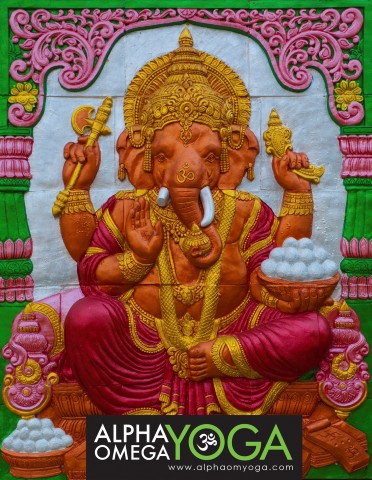Yoga and Ethics Through the practice of Yoga we can tap into our highest human potential, which gives us the ability to transcend our human condition of pleasure and pain. If we don’t have a genuine longing for self-transformation we will not have genuine Yoga. Yoga is about purifying ourselves on all levels, which includes body, mind, spirit, speech, actions and our thoughts. This is about cultivating ethics for ethics is the foundation of Yoga and the gateway to God-realization. Here is a quote from the Cula-Malunkya-Sutta found in the Majjhima-Nikaya “Without ethical perfection, no spiritual progress or realization is possible. A Yogic student or aspirant must be strictly ethical. He or She must be truthful and pure in thought, word and deed. He or She must possess excellent conduct. He or She must not injure any living being in thought, word and deed. He or She must practice rigidly right thought, right speech and action.” The Eight Limb path that is found in the Yoga Sutras gives us some ethical guidelines for living our lives in the world and when we are alone and no one is looking. The Yamas and Niyamas are a great place to start our ethical journey. By practicing the Yamas and Niyamas we can take great care and responsibility for shaping our own destiny. Practicing them will help us to pierce through the veil of spiritual ignorance. Although a virtuous life does not lead directly to transcendental realization, it is a necessary condition for it. We must burn our old ways into the inner sacrificial fire. Yoga is inner sacrifice where there is no need for external rituals to concentrate the wandering mind. We can mold our own minds for deep self-transformation, which will transcend our human condition. The ego needs to merge with the Divine-self in order to dissolve the egos illusion that has a salutary effect on the world as a whole. It is like removing an irritant from the body, and our mental and physical health will come back into balance and be restored. This human life affords us a rich field of experience of pleasure and pain, which is a powerful stimulus for moral and spiritual growth. Every spiritual and moral act implies that we must go beyond our habitual patterns of the conventional self, the ego. We must always keep in mind our connection with all forms of life and the environment. According to Georg Feuerstein, “When a society has forgotten the true spiritual potential of human individuals and merely skids along the surface of existence, it increasingly is dedicated to unviable forms of thought and behavior until it becomes dysfunctional (“neurotic”) and self-destructive.” The Yoga practitioner must recognize his or her own conciseness or self-awareness as a moral watchdog. Yoga has come to be recognized as posture practice with flexibility and showmanship that is a celebration of the ego. This violates the very principles on which authentic Yoga is based. Our media has created an imbalance of moral ethics by bombarding us with sex and violence. Even print material such as magazines gives us the messages of sex and violence. Making us think that we need to be sexy, and this bases a society on sexual pleasures. I am not saying there is something wrong with sex; it just needs to be in the right context. We must always be careful of what we put in our minds and uphold the path to enlightenment. A virtuous person is a harmonious person, so we must polish the mirror of the mind. Our conduct must be noble and abstain from negative thoughts, emotions, words, and actions and foster their opposites. We can do this though meditation and by always watching our thoughts, deeds, and actions. Chidanandi Sheri Cherokee, MBA, E-RYT 500, Ayurveda Counselor
- sheriis@yahoo.com's blog
- Log in or register to post comments


